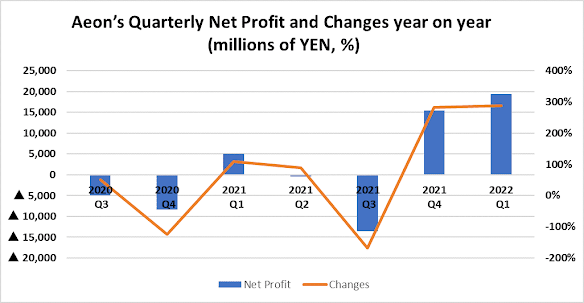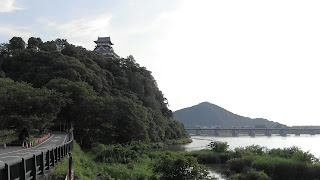Japan’s COVID cases on the rise pose a risk to derail its economy again
Bank of Japan released data on July 12 that showed wholesale prices in Japan jumped 9.2 percent in June from a year earlier as import prices surged at the fastest pace on record due to plummeting value in the yen. The yen's recent depreciation unseen in about two decades against the U.S. dollar pushed up import prices hurting resource-poor Japan’s economy. The core consumer price index excluding volatile fresh food items rose 2.1 percent in April and May, a level above the BOJ's target of 2 percent. Japanese companies and consumers are feeling the impact of rising prices.
Japan's health experts warn of an explosive increase in the number of new coronavirus cases
To make matters worse, recent abrupt increase in the number of new coronavirus cases pose another risk to Japan’s economy. The explosive increase in new covid cases in Japan makes healthcare professionals in Japan seriously worry. Japan found a record 110,600 new cases on July 15, surpassing the previous high set in February, just as the country prepares for the summer holidays. The number of infected people is more than twice of that recorded a week ago. About one-fifth of the cases reported occurred in Tokyo. Hospitals in areas where the number of infected people is increasing are working hard to cope with the rapid increase in the number of infected people. Fifty patients with a fever visited a clinic near Tokyo on Friday morning, and almost half of them tested positive for the virus. The doctors at this clinic are very worried that things have changed a lot in the last two weeks. Experts speculate that this is due to the surge in the Omicron variant BA.5, which is believed to be highly infectious. It is not clear if this variant tends to cause severe symptoms, but there are concerns that the explosive increase in the number of infected people would lead to a rise in the number of serious cases.
Japan’s PM does not intend to introduce new restrictions right now
Meanwhile, Japanese Prime Minister Fumio
Kishida has stated that he has no intention to strengthen regulations to contend
the infection. Kishida held a meeting of the coronavirus taskforce on July 15 ahead
of the national long weekend. They discussed ways to get people tested before
heading home to visit elderly relatives. Kishida says he'll keep Japan on high
alert and put the focus on boosting the medical system's ability to handle
spiking cases. The government also considered to administer the vaccine for the
fourth time as well as to increase the number of coronavirus free testing
centers across the country, which have already been set about 13,000 places nationwide.
In recent months, quarantine procedures for people entering Japan have been
relaxed. Foreign tourists taking a guided tour to Japan are also allowed to
enter the country. The government of Japan has no plans to limit economic
activity or movement of people. The government says there is no need right now
to impose restrictions again, since local governments have not yet requested
quasi-emergency measures although it plans to ask local governments to secure
hospital beds as infections would spread dramatically.
The government abandoned plans for a program that encourages travel throughout Japan for the time being
The government is urging people to follow
basic infection control measures such as hand washing and ventilation, as
summer vacation will increase people's interactions with others. The officials
are considering setting up free coronavirus testing centers at major train
stations and airports. The government is also considering offering a fourth
dose of COVID vaccines to medical workers. A fourth jab is currently given to
people aged 60 and older, and people aged 18 and older with underlying
conditions. Due to the nationwide increase in coronavirus infections, the
Government of Japan has abandoned plans for a program that encourages travel
throughout Japan and instead decided to extend the current program until the
end of August. Tourism minister Saito Tetsuo told reporters on Thursday that
after speaking with Prime Minister Kishida it was decided to postpone the
program to get tourism going for the time being. The government had planned
early this month to expand a travel subsidy program which is currently limited
to trips within each prefecture and surrounding areas. But the government has
instead decided to extend the current program through the end of August. Travelers
in the current program can get a discount within 6 divided blocks. The maximum
discount is 5,000 yen per person per night. The government also planned to
raise the discount amount to 8,000 yen per person per night in the above
mentioned program. Saito suggested that he wants to start the nationwide
program as soon as it is confirmed that coronavirus infections are decreasing.
Japan’s economy faces great uncertainty again after rebounding briefly
In June when the coronavirus cases kept decreasing in Japan, leisure spending was coming back with a vengeance as people rush to make up for lost time with dining, shopping and entertainment. For instance, Sales at Japan's department stores keep rebounding. In May, they posted a jump of 57.8 percent from a year earlier, rising for the third consecutive month, the Japan Department Stores Association reported. Sales were brisk for luxury goods like precious metals and jewelry. Demand for summer clothing were strong.
Aeon Co., the Japanese retailer best known for the giant
hypermarkets that bear its name, also announced that its first-quarter net
profit from February to May more than tripled thanks partly to the reopening of
Japan's economy following Covid-19 restrictions. As COVID fears ebb in Japan
until June, tourism industry and retailers were ready for tourists coming back from
abroad and rebounding consumption. However, looming another pandemic could
stall Japan’s economy again.
.png)




Comments
Post a Comment